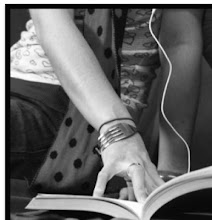Friday, March 5, 2010
Wiki-Wiki
I have been having a tremendous amount of fun creating wikis for use in my classroom and with my students. This week, I decided to create the instructions for an upcoming project into a home page on the newest wiki that I will be creating interactively with my 8th graders. It is called BigKidRecommend; 8th graders will develop short author studies accompanied by videos that they produce of scenes from their favorite children's books. Once completed, they will add their pages to the wiki space and I will use it with my younger students when we do author studies or when they are searching for something new to read. I have produced several wikis; a couple of these are www.whome.wikispaces.com (a website with lessons regarding our environment) and this one www.bigkidsrecommend.wikispaces.com. These are a practical and easy way to connect your students to technology.
RSS Feeds
Really Simple Syndication; not so much. I had trouble just getting started in bloglines.com; doesn't seem really simple to me. I understand the concept, however, a great, short way to see what is up to the minute in news, blogs, video, and audio; a busy man or woman's way of keeping up without leaving where they are. I appreciate the fact that many major news networks such as CNN and USA Today offer this format. I don't quite get how blogs can really be that important. Maybe my tendency to hang on to a little bit of "I don't really need it now" is holding me back on this one. I think out of all the technology that I have researched and "played" with in my SLIS classes, this one seems to be the one that I probably won't use.
Wednesday, March 3, 2010
Been A While
As I continue on my journey towards my second master's, I am now in a class that continues to stretch me in regards to technology. Blogging this week is to be about things we are exploring. I have been using wiki spaces alot during this school year; sometimes quite successfully; other times not so much. It can be a challenging experience at times, but not nearly as challenging as developing your own web page so I choose it often. I have developed several lesson plans using it and my 7th graders and I developed a school history for our school's 35th anniversary; that was interesting and challengeing. It can really be tough when kids accidentally wipe out the work of others kids. Such is life.
Wednesday, October 7, 2009
Reflective Journaling
The following inquiry steps noted by Barbara Stripling (2003) will be used in the reflective journaling process: "connecting, wondering, investigating, constructing, expressing, and reflecting." Students will be given the following steps for their responses:
1. Connect- to the researched child by using observation of the researched background and bio materials while keeping a first person diary that connects the child to the information that is uncovered daily in lit circle and novel readings
2. Wonder--"develop questions" that your child might have about the oppression that is taking place in their country
3. Investigate--on your own, e-mail a local expert (professor, teacher, rabbi) and ask them what they know about the Holocaust
4. Construct--Based on your prior introduction including readings, video, research, and discussion, journal about what you now understand about the Holocaust that you did not at the beginning of the unit
5. Express--Develop a song or poem from the perspective of your child that incorporates both the feelings and new understandings; share this with at least one class mate
6. Reflect--Look back over your journal and determine at least three new things that you are now compelled to learn about this time period (Stripling, 2003)
1. Connect- to the researched child by using observation of the researched background and bio materials while keeping a first person diary that connects the child to the information that is uncovered daily in lit circle and novel readings
2. Wonder--"develop questions" that your child might have about the oppression that is taking place in their country
3. Investigate--on your own, e-mail a local expert (professor, teacher, rabbi) and ask them what they know about the Holocaust
4. Construct--Based on your prior introduction including readings, video, research, and discussion, journal about what you now understand about the Holocaust that you did not at the beginning of the unit
5. Express--Develop a song or poem from the perspective of your child that incorporates both the feelings and new understandings; share this with at least one class mate
6. Reflect--Look back over your journal and determine at least three new things that you are now compelled to learn about this time period (Stripling, 2003)
Book Circles
Students will be allowed to peruse the listed book titles and take the survey at Survey Monkey (linked below) to determine the four novels to be used along with the Holocaust unit study. These novels will be read during library class in conjunction with the reading and study of Number the Stars that is being done in the literature class. Each student will keep a reflective journal during the process.
Literature Circle Survey
Please click on the link below to take a survey regarding the best book choices for students in grades 6-8 to use in literature circles during the Holocaust unit study.
Click Here to take survey
Click Here to take survey
Tuesday, October 6, 2009
Book Talk Follow-Up



To access the book talk link, you must have Windows Media player. After clicking the link, you will log into oncourse and listen to the book talk.
Once students have listened to the book talk, they will be asked to view the following pictures from the book and make predictions about the book as well as make connections between the historical overview that has been presented and the content of the book.
Subscribe to:
Posts (Atom)
